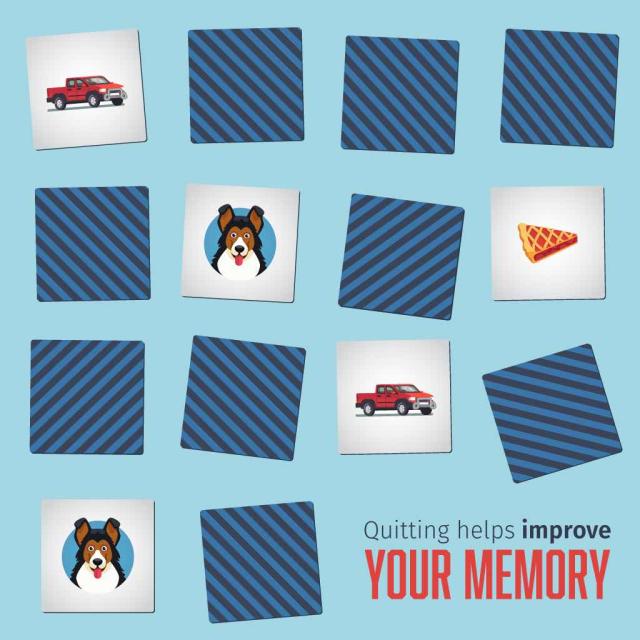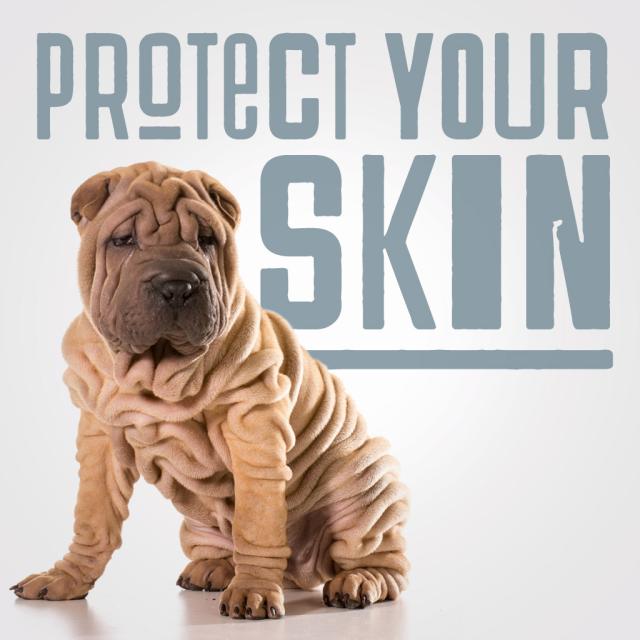Smoking harms nearly every organ of the body. But when you quit, you’ll notice a difference all over.

Physical Health
Overall Health and Life Span
- When you quit smoking, your body will begin to heal.
- After just 20 minutes, your heart rate drops. Twelve hours after quitting, the carbon monoxide level in your blood drops to normal.
- When you quit smoking, you add years back to your expected lifespan.
Cancer
- Quitting smoking will prevent new DNA damage from happening, and can even help repair the damage that has already been done. Quitting smoking immediately is the best way to lower your risk of getting cancer.
- Quitting smoking lowers the risks for cancers of the lung, mouth, throat, esophagus, and larynx.
Cardiovascular Disease
-
Smoking is the leading cause of heart attacks and heart disease. But many of these heart risks can be reversed simply by quitting smoking. Quitting can lower your blood pressure and heart rate almost immediately.
- When you quit smoking, your blood will become thinner and less likely to form dangerous blood clots. Your heart will also have less work to do because it will be able to move the blood around your body more easily.
- Quitting smoking will not get rid of the fatty deposits that are already there. But it will lower the levels of cholesterol and fats circulating in your blood, which will help to slow the buildup of new fatty deposits in your arteries.
Respiratory Disease
- Within two weeks of quitting, you might notice it’s easier to walk up the stairs because you may be less short of breath. Don’t wait until later; quit today!
- Cilia—tiny broom-like hairs that clean your lungs—start to regrow and regain normal function very quickly after you quit smoking. They are one of the first things in your body to heal. People sometimes notice that they cough more than usual when they first quit smoking. This is a sign that the cilia are coming back to life. You’re also more likely to fight off colds and infections when your cilia are working properly.
- If you have chronic obstructive pulmonary disease, quitting helps decrease symptoms or flare-ups. Quitting also improves lung function and slows the rate of lung tissue loss.
Wound Healing
- Injured or having surgery? Quitting helps your body heal.
- Quitting smoking will improve blood flow to wounds, allowing important nutrients, minerals, and oxygen to reach the wound and help it heal properly.
- When you quit, you decrease the chance that your wound will become infected.
Pain
- If you live with back pain, severe headaches, or fibromyalgia, quitting smoking can help reduce the pain you feel as part of your condition.
- If you have cancer and you quit smoking, over time you may reduce the pain that comes with your cancer symptoms and treatment.
Vision and Eye Problems
- Quitting smoking will improve your night vision and help preserve your overall vision by stopping the damage that smoking does to your eyes.
- Quitting smoking may reduce your risk of getting cataracts.
Women’s Health
- If you’re a woman, your estrogen levels will gradually return to normal after you quit smoking. Low estrogen levels can cause dry skin, thinning hair, and memory problems.
- Quitting smoking right now will increase your chances of having a healthy pregnancy in the future.
- When you quit, you decrease your chance of getting cervical, breast, and ovarian cancer.
Mental and Emotional Health
- Quitting smoking can decrease feelings of depression, anxiety, and stress.
- When you quit, you can improve your mood and quality of life.
- Quitting smoking can decrease your chance of having suicidal thoughts or attempting suicide.
If you have post-traumatic stress disorder, HIV, depression, or substance use disorders, smoking carries extra risks, and quitting carries extra benefits.







